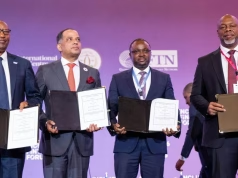Amid growing controversies over the proposed electricity tariff hike, the Nigerian Electricity Regulatory Commission (NERC) has introduced a comprehensive set of regulations to govern the process of tariff reviews. The new guidelines, signed by NERC Chairman Sanusi Garba, aim to ensure fair pricing, cost recovery, and a reasonable return on investment for electricity providers while maintaining transparency and stakeholder engagement. This move comes as part of the commission’s mandate under the Electricity Act 2023 to promote a sustainable and efficient electricity supply industry.
The Nigerian Electricity Regulatory Commission (NERC) has taken a significant step toward addressing the ongoing debate surrounding electricity tariffs by issuing detailed regulations on the procedure for tariff reviews. The new guidelines, rooted in the provisions of the Electricity Act 2023, emphasize the commission’s responsibility to establish a fair and transparent framework for determining tariffs. According to the regulations, NERC is obligated to ensure that licensees can recover prudent costs while earning a reasonable return on capital invested in the electricity sector.
The regulations highlight that Section 116(1) of the Electricity Act mandates tariff regulation for all activities within the electricity value chain, including generation, transmission, distribution, and supply. Furthermore, Section 116(2) empowers NERC to develop a tariff methodology that allows efficient licensees to recover their full operational costs and provide shareholders with a reasonable return on investment.
In line with these provisions, NERC has adopted the Multi-Year Tariff Order (MYTO) methodology, an incentive-based framework designed to project and determine tariffs in the Nigerian Electricity Supply Industry (NESI). The MYTO framework stipulates a major tariff review every five years, during which all tariff assumptions are reassessed to ensure the industry’s financial viability and operational efficiency.
To maintain transparency, NERC has outlined a detailed process for major tariff reviews. One year before the expiration of the current tariff order, the commission will issue a notice to all licensees, requesting them to submit applications for tariff reviews. These applications must be supported by audited financial statements, investment plans, and proof of customer consultations. The notice will be published in three national dailies and on NERC’s official website to ensure widespread awareness.
Once the applications are submitted, NERC will conduct an initial review and develop a consultation paper within 90 days. This paper will outline the basis for the proposed tariff adjustments, including capital investments, service improvements, and potential impacts on customer rates. Stakeholders will have 21 days to submit comments on the consultation paper, after which NERC will hold a Rate Case Hearing to consider all feedback.
Following the hearing, the commission will draft a tariff order, taking into account all stakeholder inputs. The final Major Tariff Review Order will be approved within 30 days of the Rate Case Hearing and communicated to customers through various channels, including licensees’ websites.
In addition to major reviews, NERC has also provided for minor or monthly tariff adjustments to account for fluctuations in generation fuel costs, inflation rates, exchange rates, and generation availability. These adjustments ensure that tariffs remain reflective of current economic conditions while maintaining stability for consumers.
The announcement comes as the Special Adviser to President Bola Tinubu on Energy, Olu Verheijen, revealed plans for an upcoming electricity tariff review. Verheijen emphasized that the current N200 billion monthly subsidy disproportionately benefits the wealthiest 25 percent of Nigerians, leaving low-income households underserved. The government is working to implement a targeted subsidy system that prioritizes affordability and accessibility for the most vulnerable populations.
By introducing these regulations, NERC aims to strike a balance between ensuring the financial sustainability of electricity providers and protecting the interests of consumers. The new framework underscores the commission’s commitment to fostering a transparent, efficient, and equitable electricity sector in Nigeria.
The Nigerian Electricity Regulatory Commission’s latest regulations on electricity tariff reviews mark a pivotal step toward achieving a balanced and sustainable electricity supply industry. By prioritizing transparency, stakeholder engagement, and fair pricing, NERC is laying the groundwork for a more efficient and consumer-friendly energy sector. As the nation prepares for the upcoming tariff review, these guidelines promise to address longstanding challenges while ensuring that electricity remains accessible and affordable for all Nigerians.
Follow us on Instagram.
https://www.instagram.com/businessnewsng?igsh=ZXpweTdjOGF1ZXdu

























